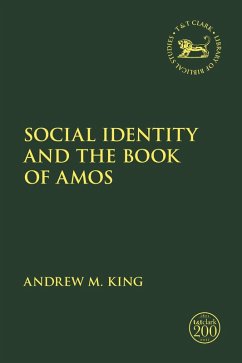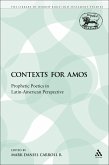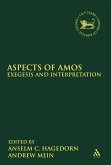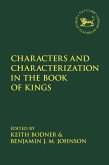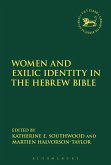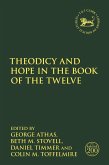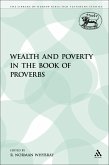What, according to the Book of Amos, does it mean to be the people of God?
In this book, Andrew M. King employs a Social Identity Approach (SIA), comprised of Social Identity Theory and Self-Categorization Theory, to explore the relationship between identity formation and the biblical text. Specifically, he examines the identity-forming strategies embedded in the Book of Amos.
King begins by outlining the Social Identity Approach, especially its use in Hebrew Bible scholarship. Turning to the Book of Amos, he analyzes group dynamics and intergroup conflicts (national and interpersonal), as well as Amos's presentation of Israel's history and Israel's future. King provides extensive insight into the rhetorical strategies in Amos that shape the trans-temporal audience's sense of self. To live as the people of God, according to Amos, readers and hearers must adopt norms defined by a proper relationship to God that results in the proper treatment of others.
In this book, Andrew M. King employs a Social Identity Approach (SIA), comprised of Social Identity Theory and Self-Categorization Theory, to explore the relationship between identity formation and the biblical text. Specifically, he examines the identity-forming strategies embedded in the Book of Amos.
King begins by outlining the Social Identity Approach, especially its use in Hebrew Bible scholarship. Turning to the Book of Amos, he analyzes group dynamics and intergroup conflicts (national and interpersonal), as well as Amos's presentation of Israel's history and Israel's future. King provides extensive insight into the rhetorical strategies in Amos that shape the trans-temporal audience's sense of self. To live as the people of God, according to Amos, readers and hearers must adopt norms defined by a proper relationship to God that results in the proper treatment of others.

